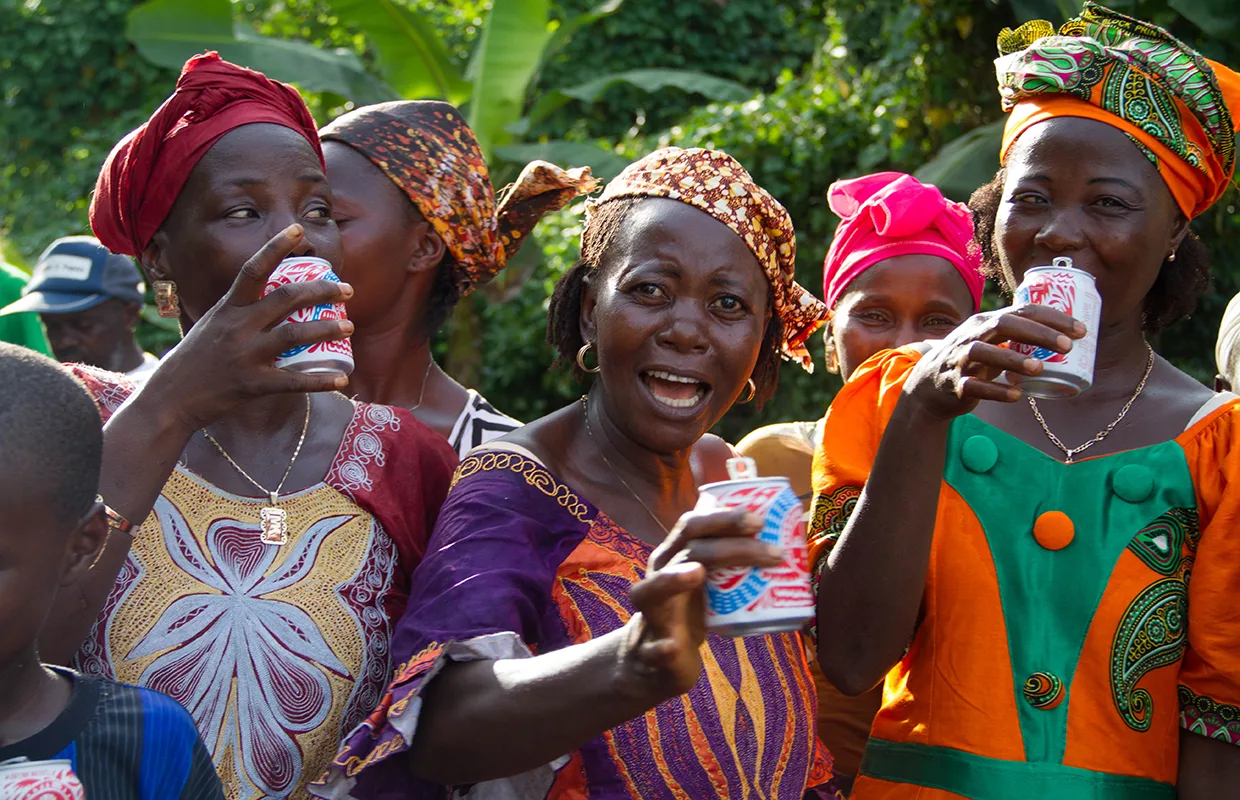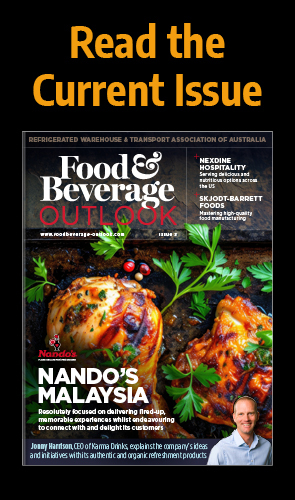Providing authentic and organic refreshment whilst empowering communities, Karma Drinks’ philosophy centres around positive action. CEO, Jonny Harrison, explains the company’s ideas, initiatives, and impact.
NOURISHING A NATION THROUGH INSPIRATION
Inspired by an idea conceived on Phia Beach in New Zealand, brothers Matt and Chris Morrison and their friend Simon Coley decided to create a cola with a conscience.
The name Karma Drinks (Karma) was born from using ingredients that are good for the land, the people who grow them, and, of course, consumers.
Researching Fairtrade and organic ingredients led the founders to imagine a product that would balance the inherent inequality of a fantastically weird statistic they uncovered – 1.8 billion cola drinks are consumed around the world every day!
Realising that’s a “shed load of cola”, Karma Cola was born, however there was another startling discovery – today, the vast majority of cola doesn’t contain the kola nut.
Therefore, the popular beverage offers no benefit to the poorer African communities who were pivotal in initially creating cola by providing the essential ingredient.
To redress this injustice, the founders sought a small village in Sierra Leone to source the first delivery of kola nuts. Once introduced to the amazing people there, the story of Karma began.
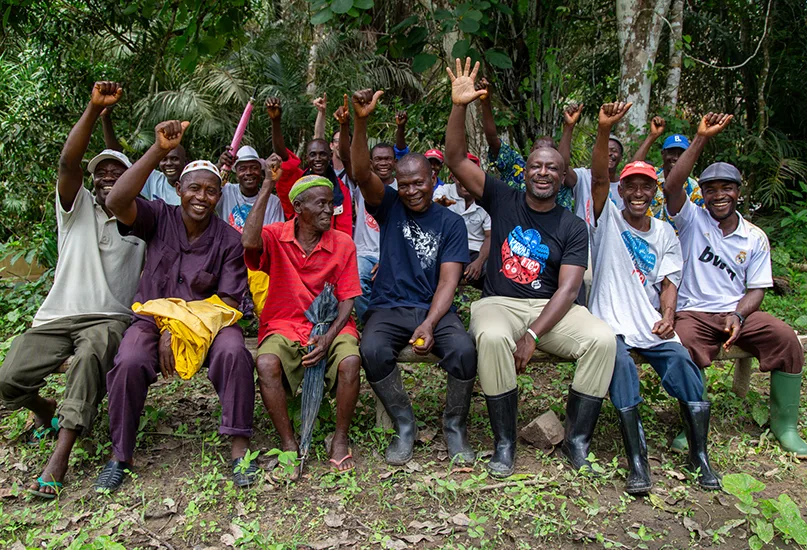
KARMA IN A NUTSHELL
Originally discovered by communities in West Africa, the kola nut has been an auspicious symbol for centuries.
Used in ceremonies and important occasions to signify agreement and peace, its qualities have also been recognised for aiding digestion and offering other medicinal benefits.
The most important aspects are its caffeine and theobromine content, providing lasting energy whilst suppressing appetite.
Historically, traders travelling through the desert chewed the nut for sustenance during their journeys, and farmers in West Africa continue to use it to endure arduous days at work.
Throughout time, the nut sourced from Africa has been used worldwide for medicinal and commercial purposes, however beverage companies that previously profited from it now utilise artificial flavouring.
“We believed it was not good karma to only buy nuts from the communities in Sierra Leone, so we established the Karma Foundation,” introduces Jonny Harrison, CEO.
“One percent of revenue from every drink we sell goes towards that. Additionally, we partner with the locals to fund health plans and young girls’ education, build schools and other infrastructure, aid entrepreneurs, and help preserve the precious rainforest where the nut is grown. To date, we have donated over AUD$1 million to support our growers and their communities.”
Karma is committed to upholding the highest ethical standards in all aspects of its business, and with a B-Corp score of 127.4 – significantly above the qualifying threshold of 80 – is committed to priorities beyond just profit.
“Our community score was notably high, reaching an impressive 54.2 out of 60, reflecting our pledge to ethical sourcing, local support, and impactful work methods. We also achieved a strong score for governance, demonstrating our dedication to transparency, ethical practices, and stakeholder engagement.
“We are very proud of the score we achieved for our environmental efforts, which is underpinned by our devotion to sustainable sourcing, eco-friendly packaging, and carbon footprint reduction. We’re passionate about continually improving this impact and making a positive ecological difference,” emphasises Harrison.

“We believed it was not good karma to only buy nuts from the communities in Sierra Leone, so we established the Karma Foundation”
Jonny Harrison, CEO, Karma Drinks
FAIRTRADE AND FLAVOURSOME
Karma pays a premium for organic and Fairtrade ingredients. For example, through ethical sourcing, local suppliers receive a fair price for the organic ginger in Karma’s Gingerella Ginger Ale and the organic sugar in its sodas.
“We have recently launched a delicious and refreshing new range of beverages in New Zealand – pure sparkling water infused with real fruit juice. Crafted with 100 percent natural ingredients and containing no added sugar, they are low-calorie and bursting with flavour,” Harrison divulges.
Karma has ambitious growth plans for 2025 and beyond, with the immediate focus on establishing a new product range.
“We are currently observing excellent results from both customers and consumers and have some innovative plans for later in the year.”
A new leadership team based in Australia has recently been appointed, bringing a higher level of expertise and experience to accelerate Karma’s growth.
“We will have significant incremental funding released in the next few months to support our progression. From a marketing perspective, our focus is on enhancing our brand recognition, and we are developing some very bold and exciting ideas which will materialise in 2025,” he teases.
Australia is a key market for Karma this year, and the company will rapidly expand its distribution and marketing support.
“Our ambition is to triple our business revenue over the next four years, fuelled by an understanding that the more drinks we sell, the greater impact we can have through the Karma Foundation and our Fairtrade agreements,” Harrison reveals.
“We are currently observing excellent results from both customers and consumers and have some innovative plans for later in the year”
Jonny Harrison, CEO, Karma Drinks
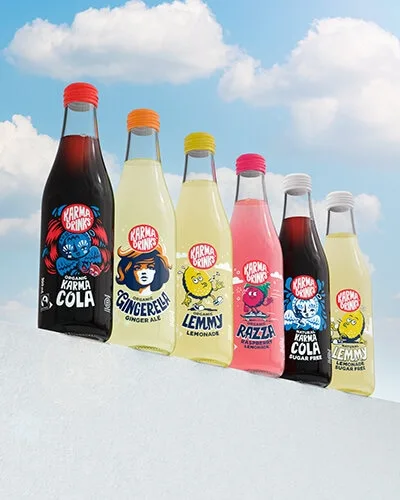
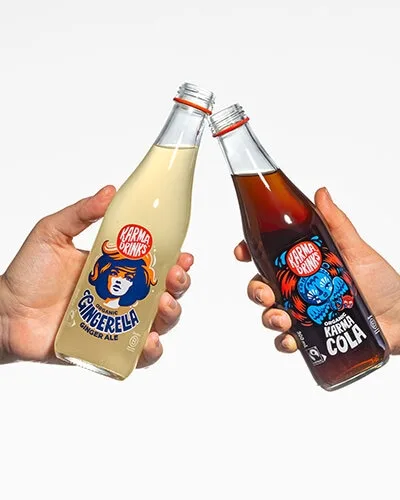
PROTECTING PEOPLE AND THE PLANET
The Karma Foundation has been instrumental in educating girls and young women in Sierra Leone.
Each year, Karma supports 150 girls through school, and so far, five of these women have graduated to attend university.
By providing bursaries and encouragement, they have become the first-ever undergraduates from villages the company has worked alongside.
“Empowerment through education is one of the most effective ways to help a community develop, and it has a significant impact. It was the first initiative that individuals supplying our kola nut chose to fund with the profits from the first bottles of Karma we sold,” impassions Harrison.
“They have become role models, inspiring younger girls in the community to pursue an education, and the numbers are rising.”
The foundation has also supported 80 female entrepreneurs and traders with loans and training, enabling their businesses to grow and deliver goods to remote communities.
This allows people to transition from trading on small stalls outside their homes to providing commodities such as salt and spices and goods like shoes, solar torches, and clothing, amongst other items.
“Additionally, the Karma Foundation provides a healthcare insurance scheme for all, enabling individuals with serious illnesses to afford treatment and contribute back to the fund,” Harrison expands.
It has also assisted farmers in reconstructing their farms using sustainable and forest-friendly processes after a decade-long war in which the villagers sought refuge in the forest and abandoned their agriculture.
“We have supported some communities in developing seed banks to maintain local varieties and prevent exploitative prices of non-indigenous forest varieties. The foundation is also collaborating with the community to develop a restoration programme.”
Furthermore, Karma and One Tribe, a climate action platform that helps fund nature-based solutions, are working together to protect the rainforest.
One Tribe connects Karma directly to rainforest protection charities through its platform, allowing every sale to make a positive environmental impact on the Indigenous tribes and biodiversity that inhabit the rainforest.
This also enables funding for on-the-ground projects to save and continually protect the land.
“Every purchase made via our website in the UK automatically saves trees in the rainforest, combatting the climate crisis by reducing carbon dioxide (CO₂) levels in the atmosphere, thus improving the carbon footprint associated with each sale,” Harrison concludes.



